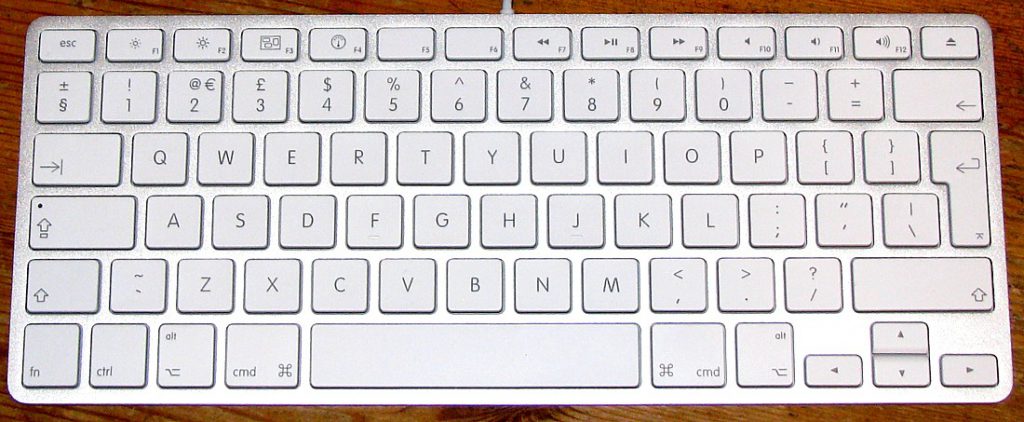Remember a posting I did last autumn about how I bought a new, small, Apple Mac keyboard? Probably not. Why would you? Anyway, I did. It still looks like this:

The thing is, you often read enthusiastic endorsements of products by purchasers, immediately after they’ve bought the thing. But such purchasers have a vested interest in being enthusiastic, because if they aren’t enthusiastic, why did they buy it? Less often do you read follow up pieces months or years later, about whether the initial enthusiasm has persisted. Well, in this case, I just want to say that this has, so far, proved to be a very successful purchase indeed. The keyboard is still working fine. It remains the solid, unclunky thing that it first seemed. It continues to be the difference between a conveniently clear desk and a hopelessly cluttered one.
I am becoming more and more open to the idea that my next computer will be a Mac rather than yet another clunky old PC.
Here, on the other hand, are some less admiring reflections about Apple, this time concerning the way that Apple handles the software on their nevertheless legendarily successful iPhone. Actually, it’s because the iPhone is so fabulously successful that Apple can handle its software so badly. Which Paul Graham reckons may cost them in the longer run.
Their model of product development derives from hardware. They work on something till they think it’s finished, then they release it. You have to do that with hardware, but because software is so easy to change, its design can benefit from evolution. The standard way to develop applications now is to launch fast and iterate. Which means it’s a disaster to have long, random delays each time you release a new version.
Apparently Apple’s attitude is that developers should be more careful when they submit a new version to the App Store. They would say that. But powerful as they are, they’re not powerful enough to turn back the evolution of technology. Programmers don’t use launch-fast-and-iterate out of laziness. They use it because it yields the best results. By obstructing that process, Apple is making them do bad work, and programmers hate that as much as Apple would.
My utterly casual and probably quite worthless opinion of Apple is that as soon Steve Jobs stops being their boss, they’re doomed. While Jobs sticks around, everything they make will look and feel great, because this is what Jobs does insist on and can insist on. He has total power and impeccable taste, which is, if you think about it, an extraordinarily rare combination of circumstances. He knows exactly what we all want, years before we do, and he screams like a horrifically spoilt child until he gets it. A few years back, Jobs did abandon Apple, or maybe it was vice versa (what with all the horrific spoilt child screaming), and Apple did then nosedive towards inevitable doom. Only when Jobs returned did the Apple glory days resume. Without Jobs, Apple will become just another clunky computer company with a glorious past and a ton of money to waste that they made in the glory days. Which they will waste and that will be that. Apple keyboards will duly degenerate into being no better than any other kind of keyboard.
Which in my opinion is the single big reason not to buy, which means to commit to, Macs.
Those complaints about Apple’s turgid software approval process were written last November. I wonder if anything has changed since then. It seems rather improbable. After all, the iPhone hasn’t got any less successful.
